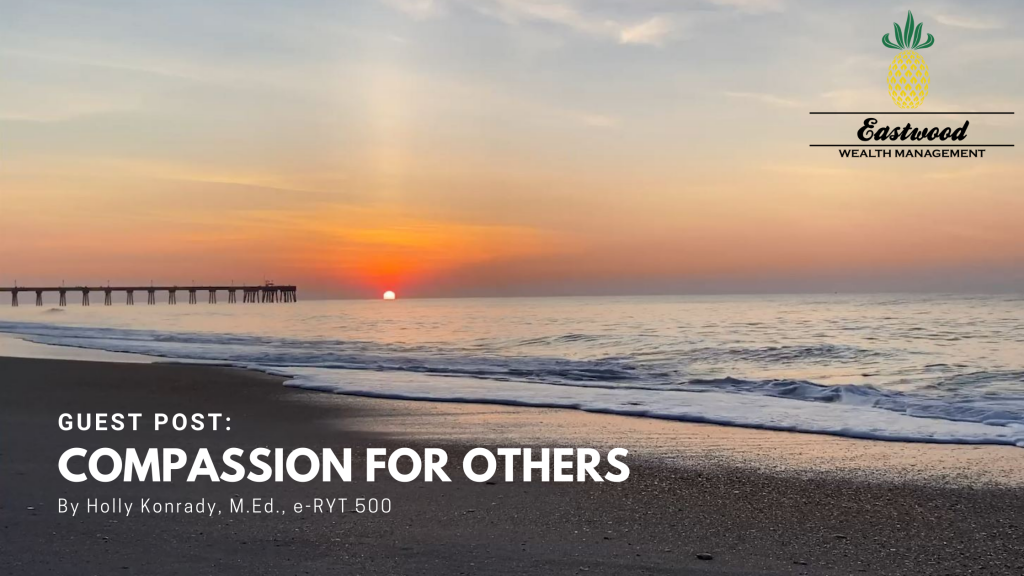November 2, 2020

Compassion is as vital to life as the air we breathe. Imagine our history without Mother Theresa, Martin Luther King, Jr., an innocent bystander running to the aid of an accident victim, or nameless people who risked their lives to save others during wartime. If this quality of compassion has the power to transform the outcome of daily events in life, it surely must have the power to transform our hearts and encourage all kinds of positive behavior.
The Dalai Lama famously said in the book The Art of Happiness, “If you want others to be happy, practice compassion. If you want to be happy, practice compassion.” This means that there is an emotional benefit to both the giver and the receiver when we practice compassion. Further, this quote instructs that it’s just as important to have compassion for others as it is to have compassion for ourselves.
According to the Center for Healthy Minds at University of Wisconsin, compassion is the wish that others not suffer as well as having the urge to help end the suffering of others. Self-compassion has been defined as “self-kindness versus self-judgment; a sense of common humanity versus isolation, and mindfulness versus overidentification” (Neff, 2003). Other research tells us that having compassion is strongly associated with satisfying personal relationships and social connections, increased happiness, increased patient satisfaction and lower distress, and promotes positive parenting. Self-compassion improves emotional well-being, anxiety, depression and stress, maintenance of healthy habits such as diet and exercise, and leads to emotional strength and resilience. We learn to motivate ourselves with kindness, forgive ourselves when needed, and relate wholeheartedly to others.
Compassion is just a notch up from empathy- to act when we feel what another person may be feeling (empathy) whether for ourselves, people we are close to, acquaintances or even strangers. Compassion begins with mindfulness, which is to be aware of what’s happening in our minds and bodies while it’s happening. This requires paying attention to our thoughts, feelings, reactions at any given time. If we pay attention to ourselves and others with a sense of interest and care this opens our ability to have compassion. If we begin to judge, evaluate, or compare- compassion is lost.
There are many ways to learn compassion. One practice is a daily mindful meditation- settle into a comfortable posture, observe your easy breathing, and recite (aloud or in your mind) affirmative phrases that have meaning or value in the moment and express kindness, such as, may you be at ease, may you be at peace, may you be free from suffering. These phrases are important to unhook the mind from entanglement of thoughts.
There are programs designed to offer this training as well: Lovingkindness (the work of Jack Kornfield), Mindful Self-Compassion (Kristin Neff and Christopher Germer), or Compassion Cultivation Training developed at Stanford University. These all offer tools to cultivate a deeper sense of love and acceptance for ourselves and others no matter what is going on in and around us.
The bottom line is that compassion matters. Simply, we can begin to cultivate compassion by paying attention and notice even the small things. The late author, Leo Buscaglia, sums this up beautifully, “Too often we underestimate the power of a touch, a smile, a kind word, a listening ear, an honest compliment, or the smallest act of caring, all of which have the potential to turn a life around.”
Resources
- The Non-Discriminating Heart: lovingkindness meditation training decreases implicit intergroup bias a study by Kang, Gray and Dovido (2014) https://pubmed.ncbi.nlm.nih.gov/23957283/
- Jack Kornfield https://jackkornfield.com/meditation-on-lovingkindness/
- Kristin Neff https://self-compassion.org/the-program/
- Compassion Institute https://self-compassion.org/the-program/
- Leo Buscaglia http://www.buscaglia.com/books
VIEW OUR Business Continuity Plan
CFP® Certified Financial Planner™ Certified Financial Planner Board of Standards, Inc. owns the certification marks above, which it awards to individuals who successfully complete initial and ongoing certification requirements.
Securities and advisory services offered through LPL Financial, a Registered Investment Advisor Member FINRA + SIPC.
The LPL Financial registered representative associated with this site may only discuss and/or transact securities business with residents of the Following states: NC, VA, SC, MD, DE and FL.
Financial planning services offered through LPL Financial, a registered investment advisor